Related Research Articles

Felix Hausdorff was a German mathematician, pseudonym Paul Mongré, who is considered to be one of the founders of modern topology and who contributed significantly to set theory, descriptive set theory, measure theory, and functional analysis.
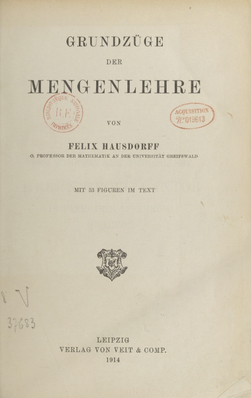
Grundzüge der Mengenlehre is a book on set theory written by Felix Hausdorff.

Andreas Speiser was a Swiss mathematician and philosopher of science.

Ludwig Schlesinger, was a German mathematician known for the research in the field of linear differential equations.

Carl Johann Adolf Alexander Witting was a German mathematician.

Niels Nielsen was a Danish mathematician who specialised in mathematical analysis.
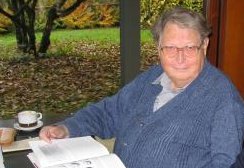
Hans-Ludwig Wußing was a German historian of mathematics and science.

Egbert Valentin Brieskorn was a German mathematician who introduced Brieskorn spheres and the Brieskorn–Grothendieck resolution.
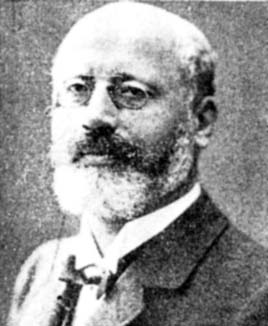
Karl Friedrich Wilhelm Rohn was a German mathematician, who studied geometry.
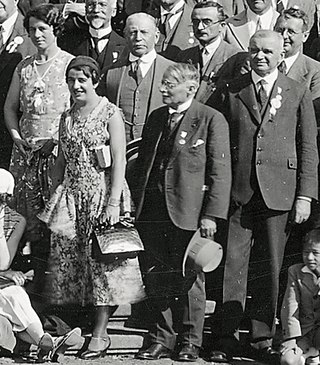
Karl Rudolf Fueter was a Swiss mathematician, known for his work on number theory.

Karl Otto Heinrich Liebmann was a German mathematician and geometer.
Heinrich Georg Leonhard Schotten was a German mathematician and mathematical pedagogue, known for his work on reforms in the teaching of geometry.

Moritz Epple is a German mathematician and historian of science.
Erhard Scholz is a German historian of mathematics with interests in the history of mathematics in the 19th and 20th centuries, historical perspective on the philosophy of mathematics and science, and Hermann Weyl's geometrical methods applied to gravitational theory.

Friedrich Georg Schilling was a German mathematician.
Johann Jakob Burckhardt was a Swiss mathematician and crystallographer. He was an invited speaker at the International Congress of Mathematicians in 1936 in Oslo.

Rolf-Rüdiger Thiele is a German mathematician and historian of mathematics, known for his historical research on Hilbert's twenty-fourth problem.
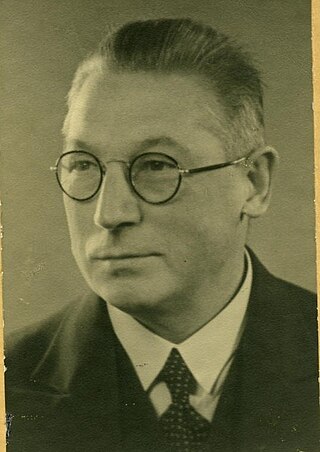
Rudolf Ernst Rothe was a German applied mathematician.

Eberhard Hermann Erich Zeidler was a German mathematician, who worked primarily in the field of non-linear functional analysis.
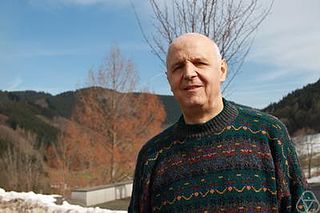
Reinhard Siegmund-Schultze is a German historian of mathematics.
References
- 1 2 3 Lothar Mertens: Lexikon der DDR-Historiker. Biographien und Bibliographien zu den Geschichtswissenschaftlern aus der Deutschen Demokratischen Republik. Saur, München 2006, ISBN 3-598-11673-X. doi : 10.1515/9783110965261
- ↑ Walter Purkert at the Mathematics Genealogy Project OCLC 122897822
- 1 2 3 4 "Purkert, Walter" (PDF). Universität Leipzig; Curriculum Vitae (in German) with publication list
{{cite web}}: CS1 maint: postscript (link) - ↑ Greuel, Gert-Martin; Purkert, Walter (2017). "Life and work of Egbert Brieskorn (1936 - 2013)". arXiv: 1711.09600 [math.AG]. (See pp. 6–11.)
- ↑ "Felix Hausdorff - Gesammelte Werke". Springer.
- ↑ "Euler-Vorlesung: Archiv".
- ↑ Schubring, Gert (2021). "Biographie. Felix Hausdorff, Gesammelte Werke. Band IB. By Egbert Brieskorn and Walter Purkert". The Mathematical Intelligencer. 43 (4): 94–98. doi: 10.1007/s00283-021-10083-9 .
- ↑ Felix Hausdorff: Mathematician, Philosopher, Man of Letters.
{{cite book}}:|website=ignored (help)